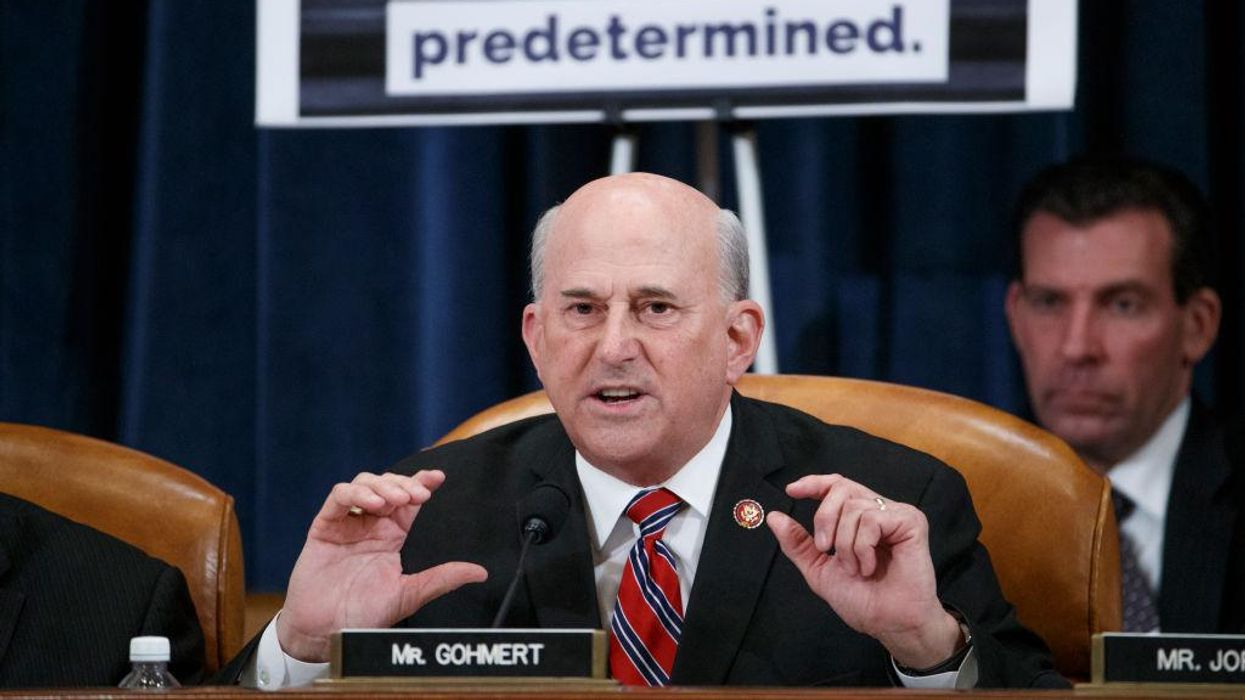
Shawn Thew-Pool/Getty Images

The suit was brought by Rep. Louie Gohmert and other Republicans
A federal judge on Friday dismissed a last-ditch effort by Rep. Louie Gohmert (R-Texas) and other Republicans to overturn the results of the 2020 presidential election.
Gohmert's lawsuit, filed Monday alongside Arizona GOP chairwoman Kelli Ward, essentially sought permission for Vice President Mike Pence to ignore his statutory duty as vice president to preside over a ceremonial joint-session of Congress on Jan. 6 to confirm Joe Biden's election victory.
The Hill explained:
The vice president's role in presiding over the Jan. 6 meeting is usually a ceremonial one governed by an 1887 federal law known as the Electoral Count Act. But the Republican lawsuit asked the judge to invalidate the law, arguing that it places an unconstitutional constraint on the vice president's authority to choose among competing claims of victory when state-level election results are disputed.
Instead, the lawsuit wanted Pence to ignore the Electoral College results — which solidified Biden's win last month — by not accepting votes from electors in certain battleground states, essentially giving Pence the unilateral power to determine who won the election.
Prior to the judge's decision, Pence filed a brief prepared by Justice Department attorneys opposing the lawsuit. Pence called the suit a "walking legal contradiction" because it sought to empower him as vice president, yet he was the lawsuit's only named defendant.
Judge Jeremy Kernodle of the Eastern District of Texas — who was appointed by President Donald Trump in 2018 — dismissed the lawsuit, ruling that Gohmert and the other plaintiffs lacked proper legal standing to sue Pence.
"This case challenges the constitutionality of the Electoral Count Act of 1887... The Court cannot address that question, however, without ensuring that it has jurisdiction," Kernodle explained. "One crucial component of jurisdiction is that the plaintiffs have standing. This requires the plaintiffs to show a personal injury that is fairly traceable to the defendant's allegedly unlawful conduct and is likely to be redressed by the requested relief."
"The problem for Plaintiffs here is that they lack standing. Plaintiff Louie Gohmert, the United States Representative for Texas's First Congressional District, alleges at most an institutional injury to the House of Representatives. Under well-settled Supreme Court authority, that is insufficient to support standing," the judge continued.
"The other Plaintiffs, the slate of Republican Presidential Electors for the State of Arizona (the "Nominee-Electors"), allege an injury that is not fairly traceable to the Defendant, the Vice President of the United States, and is unlikely to be redressed by the requested relief," Kernodle said.
"Accordingly... the Court lacks subject matter jurisdiction over this case and must dismiss the action," the judge ruled.
Notably, Kernodle dismissed the lawsuit without prejudice, meaning Gohmert and the other plaintiffs could re-file the lawsuit.
The Texas congressman has already said he plans to appeal the case to the Fifth Circuit Court of Appeals, Politico reported.